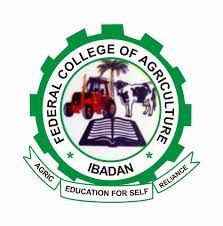EDUCATION
Project Topics for Polytechnic SLT Students on Water Analysis
Project Topics for Polytechnic SLT Students on Water Analysis

Water is one of the most essential resources for life on Earth. Despite its abundance, many regions face water contamination issues, which directly affect public health and the environment. For SLT (Science Laboratory Technology) students in polytechnics, choosing a project topic that focuses on water analysis can open the door to a vast range of scientific and practical investigations. Whether you’re aiming to identify pollutants in drinking water or examine the impact of industrial waste on local water bodies, your project can contribute to solving pressing water-related challenges.
But how do you select the right project topic that will not only impress your lecturers but also provide meaningful data? Below are several project ideas that will spark your interest and guide you toward a rewarding investigation into water analysis.
1. Analysis of Heavy Metals in Drinking Water Sources
Heavy metal contamination in drinking water is a growing concern in many regions, especially in urban and industrial areas. This project would involve analyzing water from various sources like rivers, lakes, and wells, and identifying the presence of harmful metals like lead, mercury, and cadmium. These metals can have severe long-term health impacts on humans, ranging from kidney damage to neurological disorders.
Aspects to Cover:
- Collection and preparation of water samples
- Use of Atomic Absorption Spectrophotometry (AAS) or Inductively Coupled Plasma Mass Spectrometry (ICP-MS) for analysis
- Health risks associated with the detected heavy metals
- Possible sources of contamination and mitigation strategies
2. Bacteriological Analysis of Water from Different Sources
Waterborne diseases are a significant health threat, particularly in developing countries. This project will involve the microbiological testing of water samples to detect harmful bacteria, viruses, and protozoa. SLT students will learn to identify pathogens like E. coli, Salmonella, and Vibrio cholerae, which are responsible for waterborne illnesses.
Aspects to Cover:
- Isolation and identification of microorganisms
- Use of standard methods such as membrane filtration or multiple-tube fermentation technique
- Possible water treatment methods to eliminate pathogens
- A comparison of contamination levels in different sources like rivers, boreholes, and public taps
3. Water Quality Assessment in Industrial Areas
Industrial waste often contributes to the pollution of nearby water sources. For this project, students can analyze the water quality around industrial zones to measure the levels of contaminants like oils, dyes, and chemicals. By doing this, the project will highlight the environmental consequences of industrial pollution and the urgent need for proper waste management practices.
Aspects to Cover:
- Collection of water samples from various points around industrial areas
- Chemical analysis for pollutants such as oils, solvents, and synthetic chemicals
- Impact of industrial contamination on aquatic life and human health
- Recommendations for industrial waste management practices
4. Assessment of Physicochemical Properties of Water from Urban and Rural Areas
In many regions, the quality of water varies significantly between urban and rural areas. This project could focus on analyzing the physicochemical properties of water from both settings, looking at factors such as pH, temperature, turbidity, and dissolved oxygen. The goal would be to identify areas where water quality falls below the required standards and propose methods for improving water treatment systems.
Aspects to Cover:
- Collection and testing of water samples from both urban and rural locations
- Use of test kits to measure pH, turbidity, and other essential parameters
- Statistical analysis to compare water quality in the two settings
- Discussion of urbanization’s impact on water quality
5. Impact of Agricultural Runoff on Water Quality
Agricultural runoff, which includes fertilizers, pesticides, and herbicides, can drastically alter the water quality of nearby rivers, lakes, and streams. This project will analyze the effects of agricultural practices on local water bodies, focusing on the presence of harmful chemicals and nutrients that could lead to eutrophication and the death of aquatic organisms.
Aspects to Cover:
- Sampling water from rivers or lakes near agricultural areas
- Chemical analysis for pesticides, nitrates, and phosphates
- The ecological effects of chemical runoff
- Suggestions for reducing agricultural water contamination
6. Monitoring of Water Pollution from Household Waste Disposal
In urban areas, improper waste disposal often leads to contamination of water sources. This project can analyze the water quality near areas with poor waste management practices, such as open dumpsites or illegal waste disposal sites. The aim would be to identify pollutants associated with domestic waste and understand the long-term implications of improper waste disposal.
Aspects to Cover:
- Identification of common contaminants such as plastics, metals, and organic waste
- Chemical and microbiological analysis of affected water bodies
- Public health risks linked to water pollution from household waste
- Possible solutions for better waste management
7. Effect of Water Treatment Methods on the Quality of Drinking Water
This project will investigate the effectiveness of various water treatment methods, such as filtration, chlorination, and UV treatment, on improving the quality of drinking water. Students can test water samples before and after treatment to assess the removal of contaminants like bacteria, chlorine, and heavy metals.
Aspects to Cover:
- Selection of water treatment methods for analysis
- Pre-treatment and post-treatment water sampling
- Measuring water quality improvements (e.g., pH, turbidity, bacterial load)
- Evaluation of the cost-effectiveness and sustainability of each method
8. Analysis of pH Levels in Different Water Sources
The pH of water plays a crucial role in determining its quality and its suitability for various uses. This project could involve testing the pH of water samples from different sources and analyzing how it affects aquatic life, agriculture, and human health. A particular focus could be on the impacts of acidic or alkaline water on the environment.
Key Aspects to Cover:
- Collection of water samples from rivers, wells, and lakes
- Use of pH meters or indicator papers for analysis
- Effects of highly acidic or alkaline water on ecosystems
- Recommendations for managing water pH levels in affected areas
9. Seasonal Variation in Water Quality
Water quality can fluctuate seasonally, with changes in temperature, rainfall, and agricultural activities. This project would involve monitoring water quality over different seasons to identify trends in contamination levels and to assess how seasonal factors affect water bodies.
Key Aspects to Cover:
- Collection of water samples over different seasons
- Analysis of physicochemical and microbiological parameters
- Identification of seasonal factors that contribute to water pollution
- Proposals for improving water quality management during different seasons
10. Evaluating the Efficacy of Natural Water Purification Techniques
Natural water purification methods such as sand filtration, plant-based treatments, and solar disinfection can offer sustainable alternatives to traditional methods. This project will focus on evaluating the effectiveness of these natural techniques in removing contaminants from water, particularly in rural or underserved areas.
Key Aspects to Cover:
- Design and implementation of natural filtration systems
- Testing water quality before and after filtration
- Comparison of natural methods to chemical treatment methods
- The feasibility of scaling natural purification methods in rural communities
ALSO READ: Free Final Year Project Topics for SLT Microbiology Option
Discover more from 9jaPolyTv
Subscribe to get the latest posts sent to your email.

 Admission24 hours ago
Admission24 hours agoFederal Polytechnic of Oil and Gas, Bonny Opens 2025/2026 HND & ND Admission — See Courses, Requirements and How to Apply

 Admission23 hours ago
Admission23 hours agoThings You Should Know About MAPOLY Admission for 2025/2026

 ARTICLES12 hours ago
ARTICLES12 hours agoHow Sleep Affects Your Mental Health and Mood

 Admission24 hours ago
Admission24 hours agoFederal College of Agriculture, Moor Plantation Ibadan Opens ND and HND Admission for 2025/2026 — See Requirements

 POLYTECHNIC NEWS24 hours ago
POLYTECHNIC NEWS24 hours agoICPC Case: College Rector Bags 7-Year Jail Term for Running Fake Degree Courses

 Admission23 hours ago
Admission23 hours agoMAPOLY Releases ND/HND Full-Time Admission Form for 2025/2026 Academic Session

 ARTICLES12 hours ago
ARTICLES12 hours agoSigns of Poor Mental Health in Adults

 ARTICLES12 hours ago
ARTICLES12 hours agoNatural Remedies for Mental Fatigue That Actually Work


































